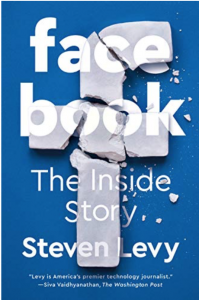The word/concept “light” comes up frequently in my reading and contemplation. So I asked Google Drive to search my notes for any document containing the word. It pleases me that I can do this. It seems that each time I stumble across one of these excerpts, it’s fresh and newly relevant for where/what I am.
As long as you cling to the idea that only what has name and shape exists, the Supreme will appear to you non-existing. When you understand that names and shapes are hollow shells without any content whatsoever, and what is real is nameless and formless, pure energy of life and light of consciousness, you will be at peace — immersed in the deep silence of reality.#
There is only light and light is all. Everything else is but a picture made of light. Life and death, self and not-self — abandon all these ideas
Just as light destroys darkness by its very presence, so does the absolute destroy imagination.
In the immensity of consciousness a light appears, a tiny point that moves rapidly and traces shapes, thoughts and feelings, concepts and ideas, like a pen writing on paper. And the ink that leaves a trace is memory. You are that tiny point and by our movement the world is ever re-created. Stop moving, and there will be no world.
The light of consciousness passes through the film of memory and throws pictures on your brain. Because of the deficient and disordered state of your brain, what you perceive is distorted and coloured by feelings of like and dislike.
— I Am That (Sri Nisargadatta Maharaj)
“If you look up at the faint smudge in the night sky that is really the distant, huge Andromeda galaxy, you might see light that, from your point of view, took two million years to traverse hat vast intergalactic distance before it was absorbed in your retina and registered as an image. For a beam of light itself, however, things look different. Instead of radiating from some star in the Andromeda galaxy and racing through space for two million years, every single photon sees itself, metaphorically speaking, as born and instantaneously absorbed in your eye. It is one simple jump that takes no time at all, according to the theory of special relativity. That’s because, in the reference frame of a particle traveling at the speed of light, all distances shrink to zero and all time collapses to nothing. From its own perspective, the photon of light leaps instantaneously from there to here because distance has no place in its existence. We can almost say that the photon was created because it had someplace to land and, in an instant, it jumped from there to here, even across two million light years of space from our perspective.”
— The God Theory (Bernard Haisch)
“How can I look into the darkness, when looking makes it light?”
“Am I conscious now? It troubles me that I seem so often to be unconscious. I wonder what this unconsciousness is. I cannot believe I spend most of my life in a kind of darkness. Surely that cannot be so. Yet every time I ask the question it feels as though I am waking up, or that a light is switching on.”
— Ten Zen Questions (Susan Blackmore)




 “Homicide: Life on the Street is an American police procedural television series chronicling the work of a fictional version of the Baltimore Police Department’s Homicide Unit. It ran for seven seasons (122 episodes) on NBC from January 31, 1993 to May 21, 1999, and was succeeded by Homicide: The Movie (2000), which served as the de facto series finale.” (
“Homicide: Life on the Street is an American police procedural television series chronicling the work of a fictional version of the Baltimore Police Department’s Homicide Unit. It ran for seven seasons (122 episodes) on NBC from January 31, 1993 to May 21, 1999, and was succeeded by Homicide: The Movie (2000), which served as the de facto series finale.” (